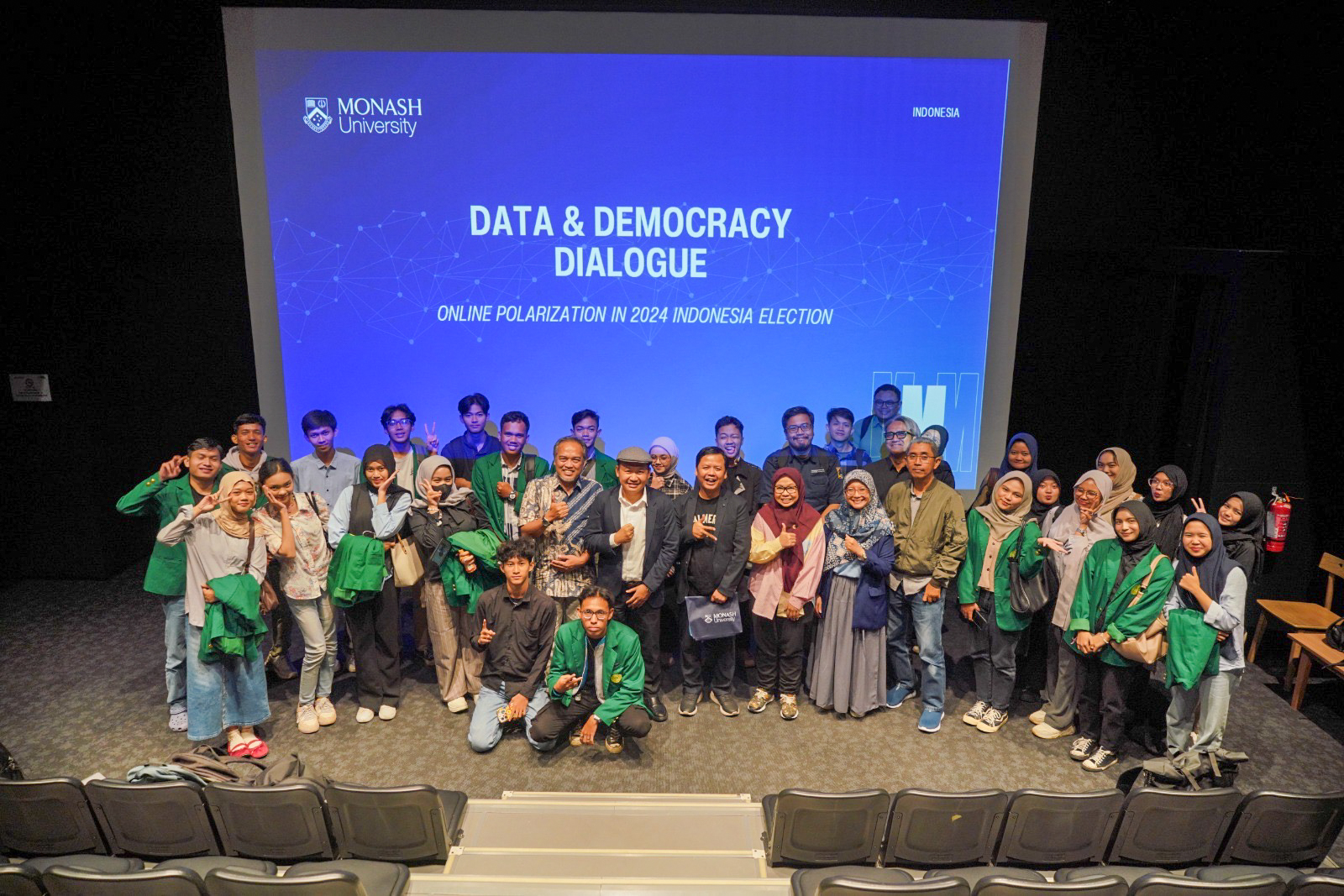On December 10, 2024, Monash University hosted an international seminar titled Data and Democracy Dialogues. The seminar brought together academics from various countries, including the US, Australia, and Malaysia, as well as representatives from non-governmental organizations (NGOs) and media practitioners.
One of the keynote speakers was Wijayanto, Ph.D., Vice Rector for Research, Innovation, Collaboration, and Public Communication at Universitas Diponegoro. An expert in digital politics and democracy, he delivered a presentation titled “New Election, Old Affective Polarization: Comparing Cyber Troops Operations in Indonesia’s 2019 and 2024 Presidential Elections.”
In his presentation, Wijayanto shared findings from research conducted with a team from the Netherlands. The study employed Social Network Analysis (SNA) to examine conversations on the X platform (formerly Twitter) during the 2019 and 2024 elections, along with in-depth interviews with 46 cyber troopers. The research revealed that most cyber troopers continued to support the same party or candidate as in the previous election, indicating that longstanding divisions remain entrenched and difficult to overcome.
Wijayanto emphasized that affective polarization remains a defining feature of the 2024 elections. This polarization reflects strong social identities, where supporters strengthen their sense of unity within their group while fostering hostility toward opposing groups. This phenomenon highlights how political polarization continues to shape the dynamics of democracy in Indonesia.
He also discussed campaign strategies employed during the 2024 elections. A combination of positive and negative campaigns remained the dominant approach. Positive campaigns highlighted candidates’ strengths, while negative campaigns attacked the personal character of opponents. Despite innovations like “whitewashing,” which aimed to present candidates in an overly favorable light, the general pattern persisted: building a positive image for one’s side while discrediting the opposition. (NH)













